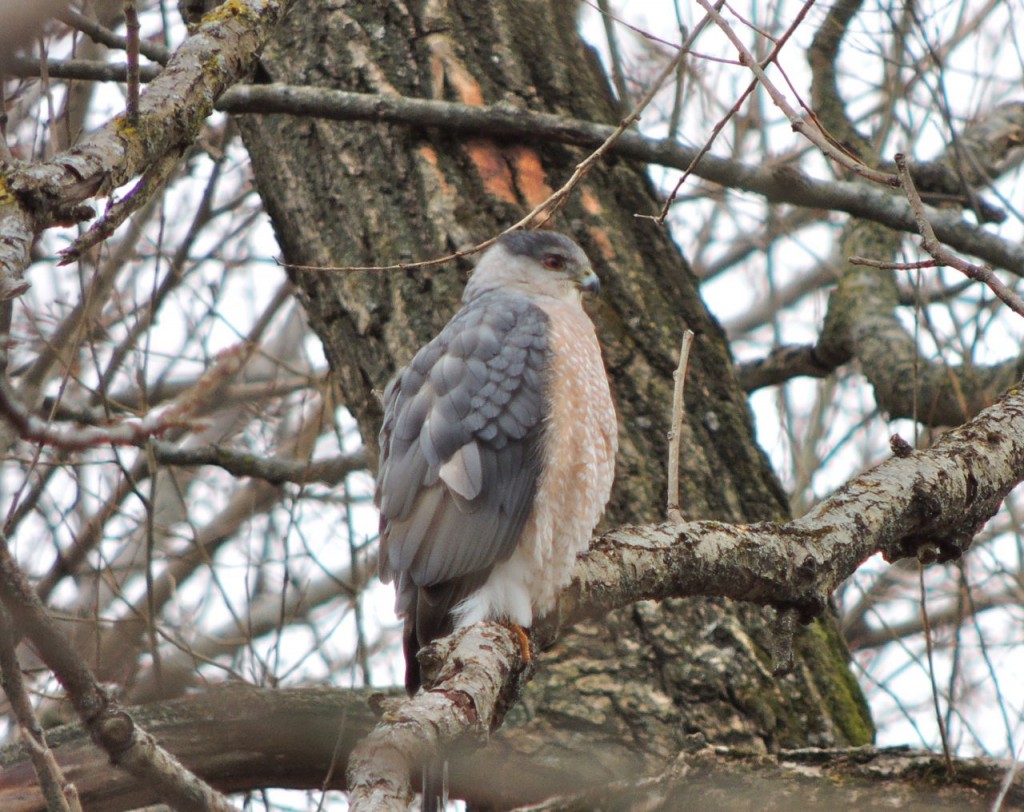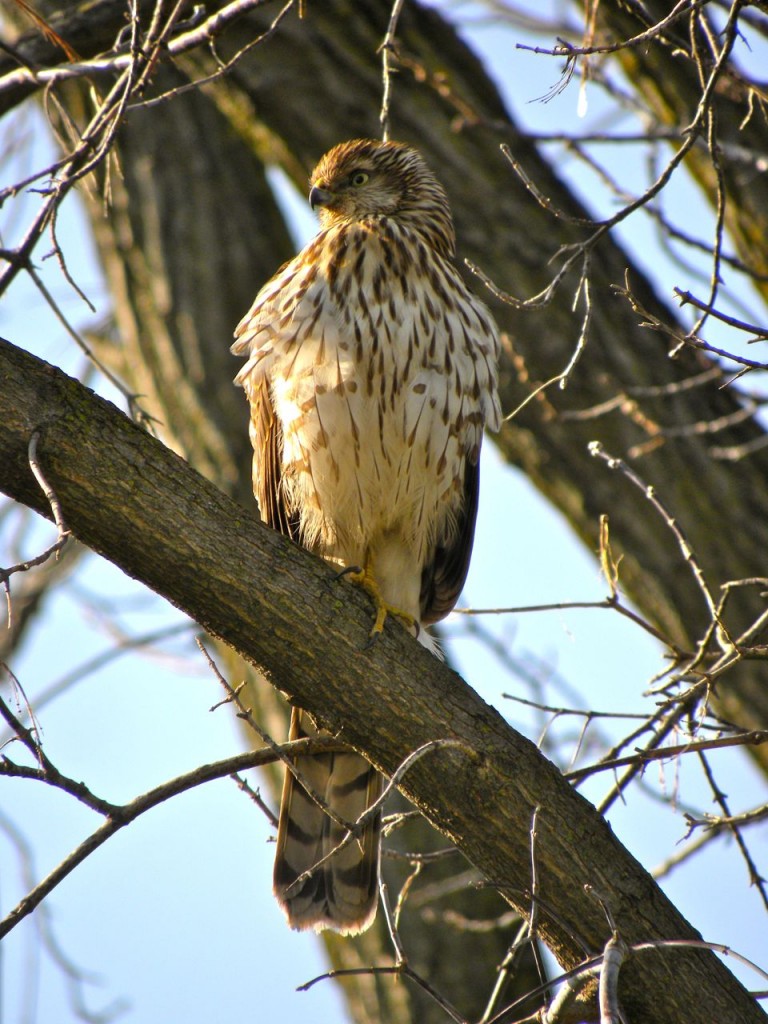10 December 2014. Burlington ON. In past years I have offered food to our backyard birds but found that by December they’d all flown south and my urban neighbourhood became an avian wasteland; so I don’t do it much anymore. A touch paradoxical you might think, that a guy who clearly spends so much time in the study of birds doesn’t even hang up a piece of suet. Still, that’s the way it is. The upside is that my birding gets me out of the house.
But this morning, wandering into a back room, I look out to see a Sharp-shinned Hawk perched on the top rail of my back yard fence; It was certainly a wow! moment. It was looking around with quick movements, searching for food I imagine, and a few moments later it took off. Bird of the Day before the day had really got started.

I frequently hear from people that a hawk of some kind had appeared from nowhere to seize a Morning Dove from their bird feeder. As often as not it’s about the explosion of dove feathers amid the carnage, but sometimes it’s a tale of woe and rage against the vile hawk. My bet is that the hawk of some kind is a Cooper’s Hawk (which have a preference for larger birds like mourning Doves) or maybe a Sharp-shinned Hawk (which, being smaller, will usually go for smaller birds like juncos); both are ambush hunters built to fly fast through dense woodlands and grab unwitting prey. Backyards with bird feeders are nothing if not well-stocked wintering habitat.

Peter, I continue to thoroughly enjoy reading your birding exploits and am absolutely awe-struck by some of your fabulous photographs. Every day seems to bring you a new delight whilst, down here in the far south of Spain, it is as if all our winter visitors have decided to give the country a miss this year. Where are all the waders, the wintering Short-eared Owls and even the Crane numbers are about 100 rather than at least a thousand over at Fuente de Piedra. Said lake has almost dried up so the Greater Flamingos are having a hard time and mainly congregated at the far end. No sign of the breeding Lesser Flamingo and in only a couple of months time we ought to be looking at almost 40,000 (rather than about 1,000 Flamingos) getting ready for the breeding season. We need some rain – and in a hurry, too!
Bob Wright
Certainly a WOW moment…..and to make a fantastic clear shot is WOW as well.